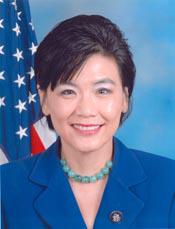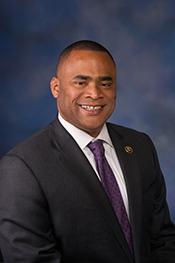0
0
0
Asunción Valdivia Heat Illness, Injury, and Fatality Prevention Act of 2023
3/7/2024, 8:15 AM
Summary of Bill HR 4897
Bill 118 HR 4897, also known as the Asunción Valdivia Heat Illness, Injury, and Fatality Prevention Act of 2023, aims to address the growing issue of heat-related illnesses, injuries, and fatalities in the United States. The bill is named after Asunción Valdivia, a farmworker who tragically died from heat stroke while working in extreme temperatures in California.
The main provisions of the bill include establishing a national heat stress standard to protect workers in high-risk industries, such as agriculture, construction, and manufacturing. This standard would require employers to provide adequate breaks, access to shade and water, and training on recognizing and responding to heat-related illnesses.
Additionally, the bill calls for the creation of a national heat illness and injury surveillance system to track and monitor incidents of heat-related illnesses and fatalities across the country. This data would be used to inform future prevention efforts and ensure that workers are adequately protected from the dangers of extreme heat. Furthermore, the bill includes provisions for increasing public awareness about the risks of heat-related illnesses and the importance of prevention measures. This would involve educational campaigns targeting both employers and workers to promote safe practices and reduce the incidence of heat-related injuries and fatalities. Overall, the Asunción Valdivia Heat Illness, Injury, and Fatality Prevention Act of 2023 seeks to improve workplace safety standards and protect workers from the dangers of extreme heat, ultimately saving lives and preventing unnecessary suffering.
The main provisions of the bill include establishing a national heat stress standard to protect workers in high-risk industries, such as agriculture, construction, and manufacturing. This standard would require employers to provide adequate breaks, access to shade and water, and training on recognizing and responding to heat-related illnesses.
Additionally, the bill calls for the creation of a national heat illness and injury surveillance system to track and monitor incidents of heat-related illnesses and fatalities across the country. This data would be used to inform future prevention efforts and ensure that workers are adequately protected from the dangers of extreme heat. Furthermore, the bill includes provisions for increasing public awareness about the risks of heat-related illnesses and the importance of prevention measures. This would involve educational campaigns targeting both employers and workers to promote safe practices and reduce the incidence of heat-related injuries and fatalities. Overall, the Asunción Valdivia Heat Illness, Injury, and Fatality Prevention Act of 2023 seeks to improve workplace safety standards and protect workers from the dangers of extreme heat, ultimately saving lives and preventing unnecessary suffering.
Read the Full Bill
Current Status of Bill HR 4897
Bill HR 4897 is currently in the status of Bill Introduced since July 26, 2023. Bill HR 4897 was introduced during Congress 118 and was introduced to the House on July 26, 2023. Bill HR 4897's most recent activity was Referred to the House Committee on Education and the Workforce. as of July 26, 2023
Bipartisan Support of Bill HR 4897
Total Number of Sponsors
1Democrat Sponsors
1Republican Sponsors
0Unaffiliated Sponsors
0Total Number of Cosponsors
182Democrat Cosponsors
176Republican Cosponsors
6Unaffiliated Cosponsors
0Policy Area and Potential Impact of Bill HR 4897
Primary Policy Focus
Labor and EmploymentAlternate Title(s) of Bill HR 4897
Asunción Valdivia Heat Illness, Injury, and Fatality Prevention Act of 2023
Asunción Valdivia Heat Illness, Injury, and Fatality Prevention Act of 2023
To direct the Secretary of Labor to promulgate an occupational safety and health standard to protect workers from heat-related injuries and illnesses.
Comments
Sponsors and Cosponsors of HR 4897
Latest Bills
Providing amounts for the expenses of the Committee on Ethics in the One Hundred Nineteenth Congress.
Bill HRES 131December 12, 2025
Providing for congressional disapproval under chapter 8 of title 5, United States Code, of the rule submitted by the Bureau of Land Management relating to "Central Yukon Record of Decision and Approved Resource Management Plan".
Bill HJRES 106December 12, 2025
Expressing the sense of the House of Representatives in condemning the Government of the People's Republic of China for its harassment and efforts to intimidate American citizens and other individuals on United States soil with the goal of suppressing speech and narratives the People's Republic of China finds unwelcome.
Bill HRES 130December 12, 2025
Providing for congressional disapproval under chapter 8 of title 5, United States Code, of the rule submitted by the Bureau of Land Management relating to "North Dakota Field Office Record of Decision and Approved Resource Management Plan".
Bill HJRES 105December 12, 2025
Providing for congressional disapproval under chapter 8 of title 5, United States Code, of the rule submitted by the Bureau of Land Management relating to "Miles City Field Office Record of Decision and Approved Resource Management Plan Amendment".
Bill HJRES 104December 12, 2025
Providing amounts for the expenses of the Select Committee on the Strategic Competition Between the United States and the Chinese Communist Party in the One Hundred Nineteenth Congress.
Bill HRES 104December 12, 2025
Critical Access for Veterans Care Act
Bill S 1868December 12, 2025
OATH Act of 2025
Bill S 1665December 12, 2025
A bill to extend the authority for modifications to the Second Division Memorial in the District of Columbia.
Bill S 1353December 12, 2025
Saving Our Veterans Lives Act of 2025
Bill S 926December 12, 2025
Asunción Valdivia Heat Illness, Injury, and Fatality Prevention Act of 2023
Bill S 2501March 14, 2024





